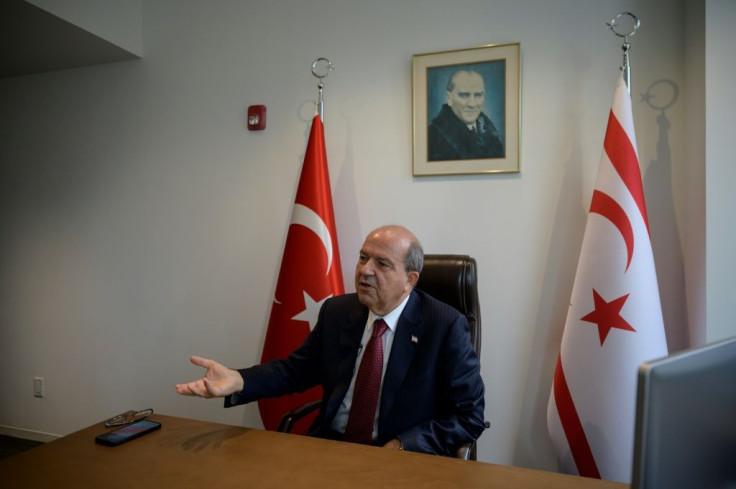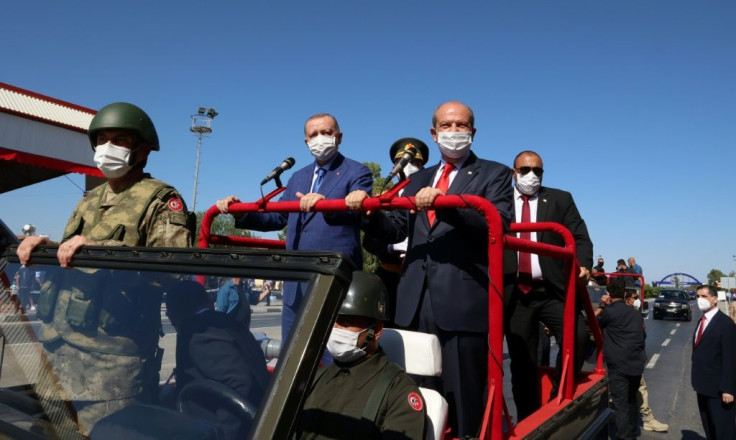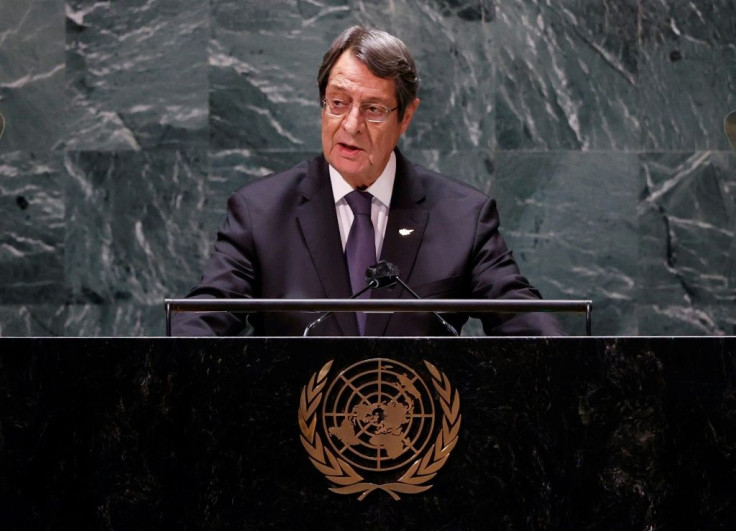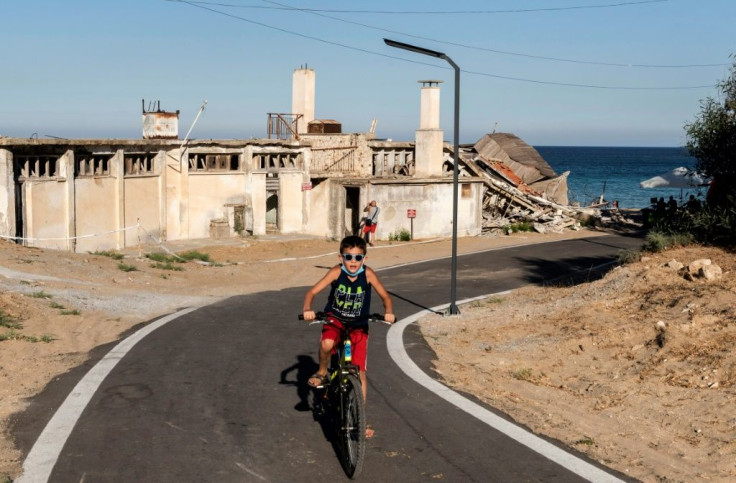Low Hopes For UN Talks On Cyprus After Spike In Tensions
Alarmed by a spike in tensions, the UN chief is preparing new talks on divided Cyprus but little progress is expected as the two leaders put forward ideas strongly rejected by the other.
Secretary-General Antonio Guterres last held talks with the Greek Cypriot and Turkish Cypriot leaders in April in Geneva, making a rare pandemic trip but concluding that there was little common ground.
There is likely to be even less headway Monday when Guterres welcomes the two to lunch on the sidelines of the UN General Assembly in New York after Turkey, which occupies a third of the Mediterranean island, backed a formal partition into two states, drawing rebukes from the West.

Turkish Cypriot leader Ersin Tatar, a close ally of Turkish President Recep Tayyip Erdogan, said he would press a two-state solution and acknowledged he did not expect substantial advances.
"I never run away from talks. I am prepared to talk but to talk realistically about what is on the ground," he told AFP.
"If you are going to really have a realistic chance of settlement, that settlement should be based on two equal, sovereign states."

Diplomats say that Guterres' personal investment in Cyprus is not rooted in any naive expectation of a breakthrough but in keeping enough diplomacy alive to prevent a flare-up on the island which, however intractable the political dispute, has remained mostly peaceful for decades.
Cyprus has been divided since 1974 when Turkey seized the north in response to a coup orchestrated by an Athens-backed junta seeking to annex the island to Greece.
Nicos Anastasiades, president of the internationally recognized Republic of Cyprus that is led by the island's Greek Cypriot majority, said he would keep supporting a longstanding UN-backed proposal to reunite Cyprus in a federation of two zones.

Speaking Friday before the General Assembly, Anastasiades also floated a return to the 1960 constitution that took force after independence from Britain in which the island would have a Greek Cypriot president and Turkish Cypriot vice president.
"It goes without saying that such an invitation is not meant to be an alternative to the agreed basis of the settlement," Anastasiades said.
"It is meant to ease the Turkish Cypriot community back into the state pending a final settlement."

Hopes for a diplomatic solution have been dim since 2004 when Greek Cypriot voters rejected a unification plan by former UN chief Kofi Annan.
Tatar, speaking in a towering new Turkish mission inaugurated by Erdogan across from the UN headquarters, said the two sides were already effectively separate, with Greek Cypriots and Turkish Cypriots having no influence on each other's lives.
"We have so many things happening in the last 60 years that going back to 1960 is impossible," Tatar said.
"I respect their people as a separate community. They have their own language, they have their own religion, they have their own culture. But I want this respect to be mutually recognized."
He said that two separate states would have friendly relations, with cooperation in areas including energy and the environment, and mused that Cyprus could become "the Singapore of Europe in the Eastern Mediterranean" as a vital trade hub.
On a visit by Erdogan to northern Nicosia in July, he and Tatar announced that they would open up Varosha, once the island's most famous resort but a ghost town since Greek Cypriots fled during the 1974 invasion.
The announcement drew consternation from Guterres, the United States and the European Union -- of which Cyprus has been a member since 2004.
Tatar defended the move as legal but said that all issues can be discussed after recognition of sovereignty.
Anastasiades in his speech accused Erdogan of "blatant interventions" to install Tatar in last year's presidential election in the Turkish Republic of Northern Cyprus, which is recognized only by Turkey.
Tatar, a soft-spoken British-educated accountant pulled off a surprise, narrow win over Mustafa Akinci, who favored working with Greek Cypriots on a federal solution.
Anastasiades accused Turkey of wanting to create new facts on the ground.
"All such actions are clearly intended to destroy the prospects of a settlement based on the agreed UN framework," he said.
© Copyright AFP {{Year}}. All rights reserved.





















